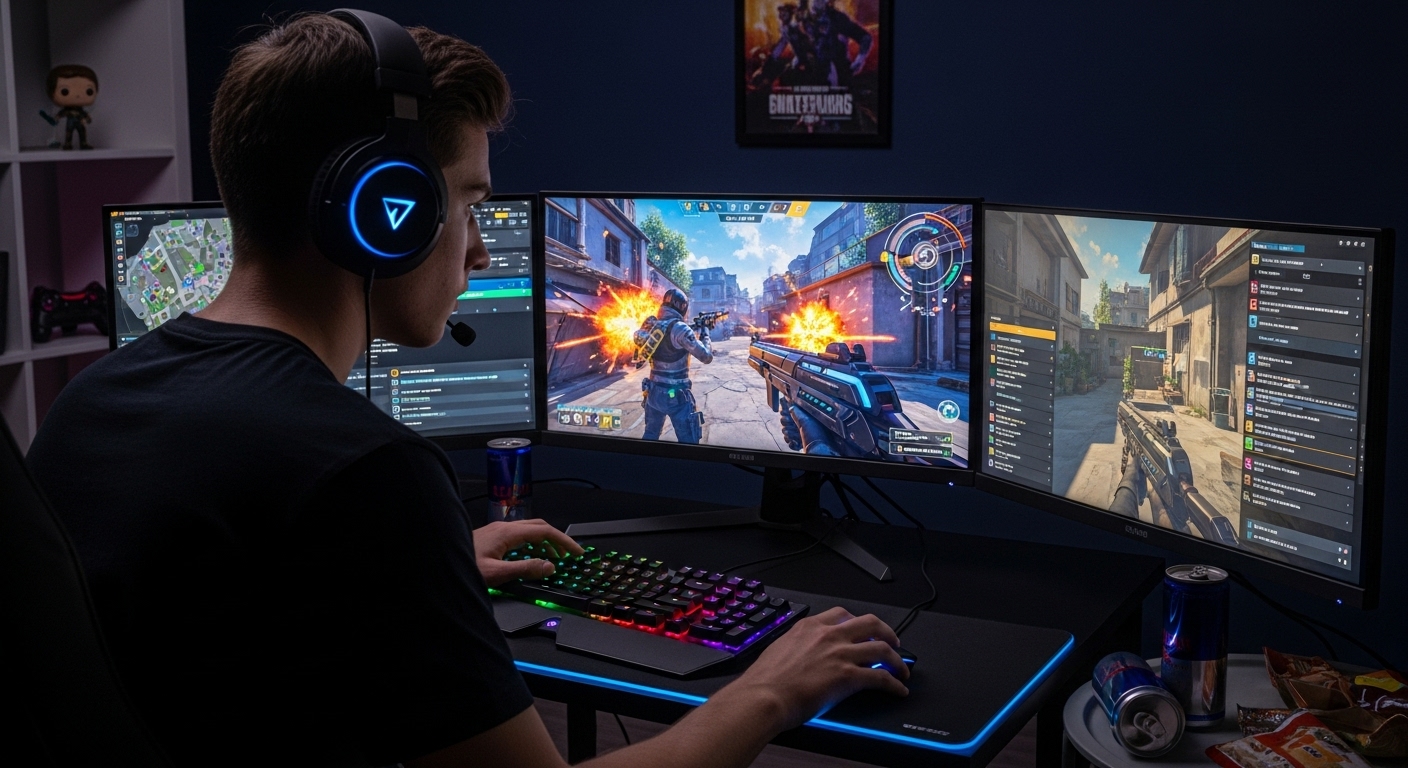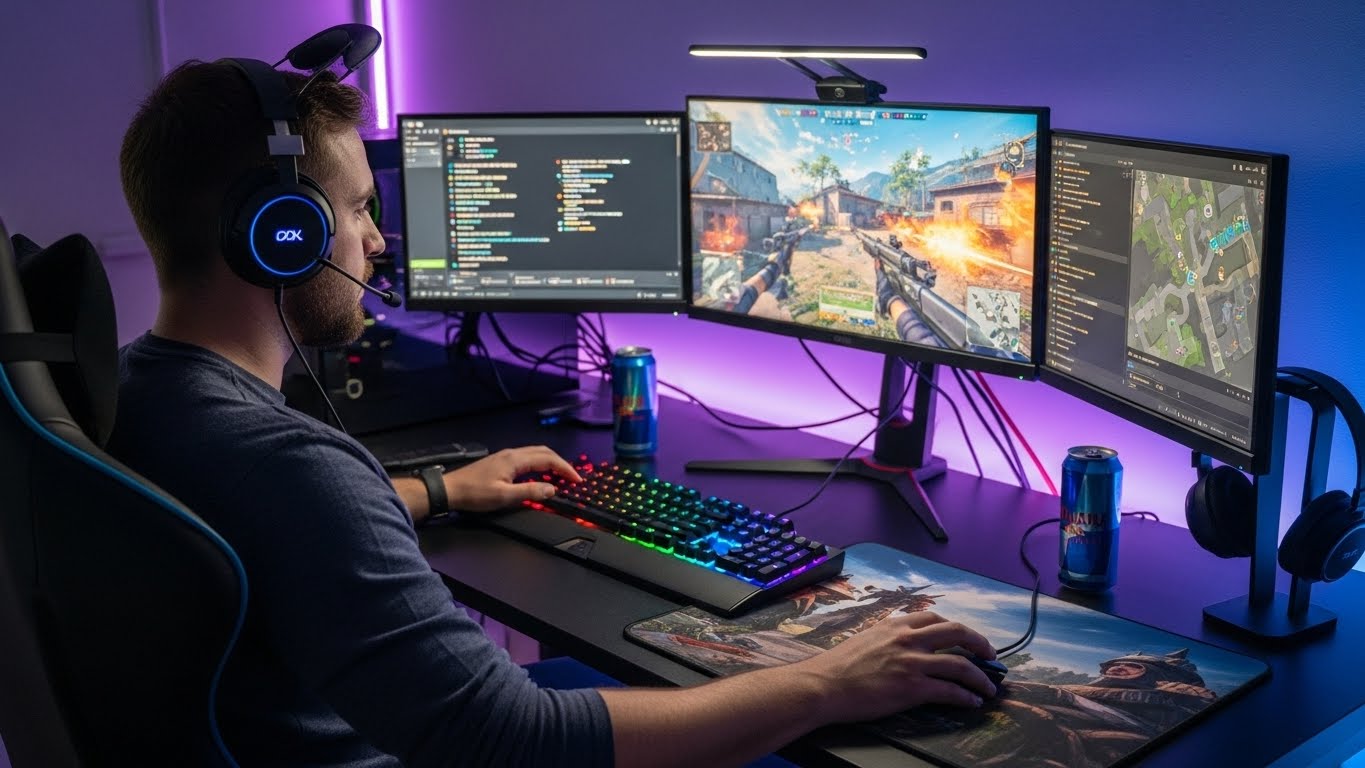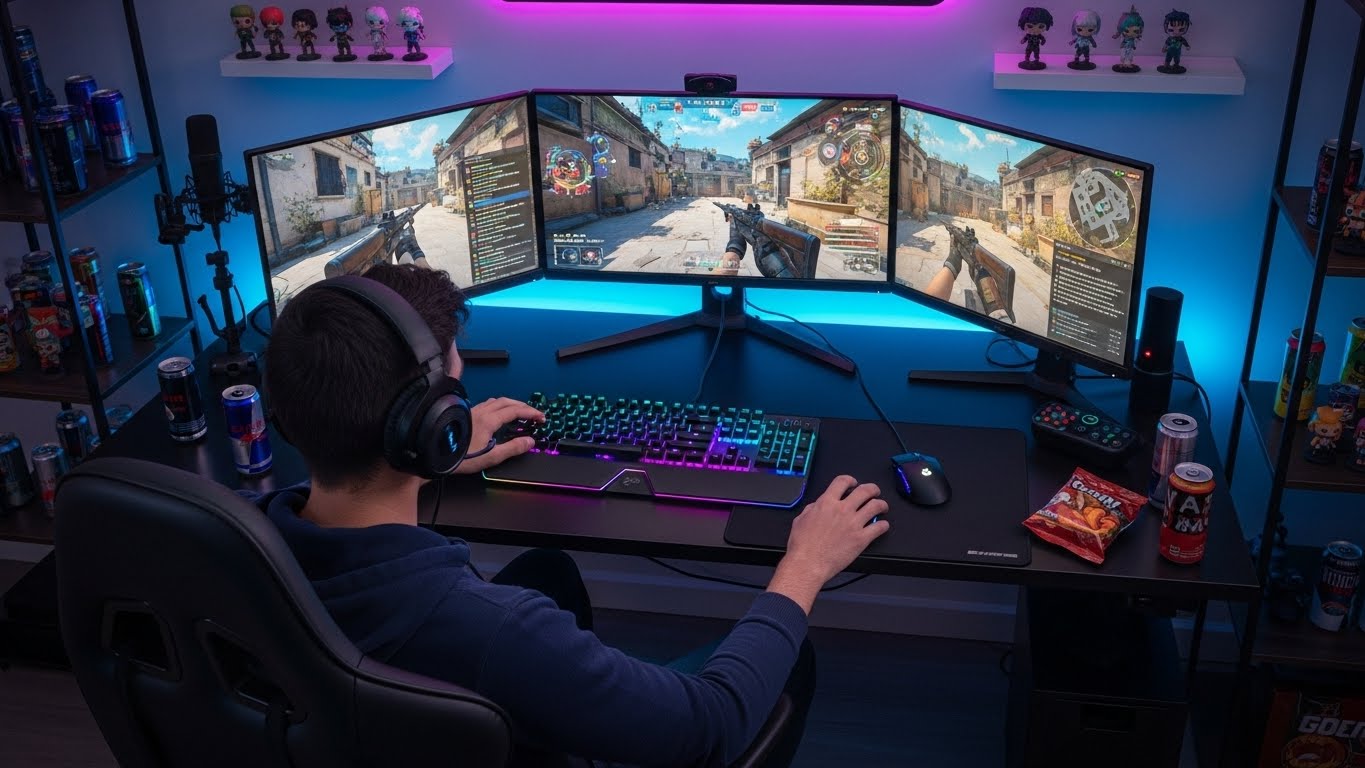Introduction: The Power of Gaming
Gaming has evolved from simple pastimes into immersive experiences that captivate millions of players worldwide. It is no longer just a way to pass time; gaming has become a cultural phenomenon, a social hub, and even a platform for creativity. Modern games allow players to step into expansive virtual worlds, make impactful choices, and engage with others in ways that were unimaginable a few decades ago.
The Evolution of Gaming Technology
From the early days of pixelated screens and limited controls, gaming technology has advanced exponentially. Today, high-definition graphics, realistic physics, and complex artificial intelligence create experiences that feel lifelike. Virtual reality and augmented reality have further pushed the boundaries, enabling players to enter worlds where they can see, hear, and interact in ways that blur the line between reality and fantasy.
Social Connections Through Gaming
Online multiplayer games have transformed gaming into a social experience. Players can team up with friends or compete against people from across the globe. Gaming communities offer a sense of belonging, and esports events have made competitive gaming a professional arena watched by millions. Beyond competition, cooperative gameplay encourages communication, teamwork, and strategic thinking, making games a powerful tool for social engagement.
Benefits of Gaming Beyond Entertainment
Gaming is often dismissed as mere entertainment, but research shows it can improve cognitive skills. Strategy games enhance problem-solving, puzzle games boost critical thinking, and fast-paced action games sharpen reflexes. Story-driven games can also increase empathy by letting players experience different perspectives. When approached responsibly, gaming can foster creativity, learning, and personal growth.
Challenges in Modern Gaming
While gaming has many benefits, it also comes with challenges. Excessive gaming can lead to addiction, social isolation, or health issues like eye strain and poor posture. Online communities can sometimes be toxic or negative. Awareness and balance are essential, both for players and developers, to ensure gaming remains a safe and enjoyable activity.
The Future of Gaming
The future of gaming is full of possibilities. With advancements in artificial intelligence, cloud-based gaming, and immersive technologies, games will become more interactive, adaptive, and realistic. Players can expect worlds that respond dynamically to their choices, creating personalized experiences unlike anything before. Gaming is poised to continue shaping culture, education, and entertainment for generations to come.
Conclusion: Gaming as a Cultural Force
Gaming is no longer just a pastime—it is a cultural force that influences how people connect, learn, and experience stories. From casual players to professional esports athletes, gaming impacts millions of lives every day. As technology advances, the line between digital and real-world experiences will continue to blur, making gaming an even more integral part of our society.



